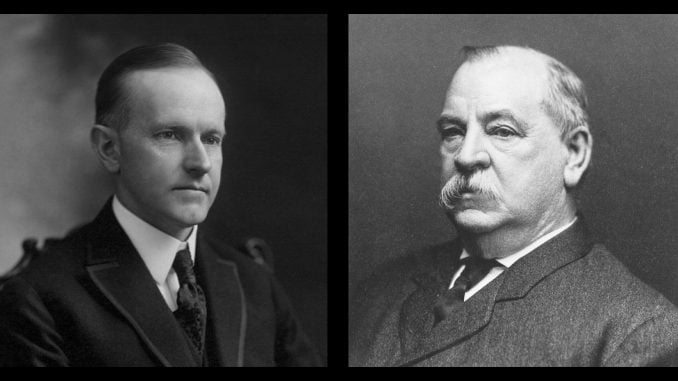
As Americans come to grips with the reality of our $20 trillion national debt, we cannot help but wonder how it is we got here. The saga of the farm program provides some useful insight.
The 2018 Farm Bill was voted down May 18 at the hands of an unlikely coalition of conservative Republicans, who sought to focus first on border security, and the great majority of Democrats, who opposed any cutbacks. Projected 10-year spending under this bill was estimated at a whopping $867 billion. However, the bill was hailed as a “conservative triumph” in some quarters because it reduced projected spending by $112 billion.
To understand how we got here, it is instructive to look back at several historical points. First, start with a relatively minor event in 1887. Several Texas counties had experienced a severe drought and were in dire need of seed grain. Congress sympathetically responded by passing a $10,000 grant — yes, just $10,000 — for seed grain. President Grover Cleveland, a Democrat, unflinchingly vetoed the bill. In his stinging veto message, he emphasized the need for private charity to fill the gap and warned against even the smallest steps that would lead to dependency upon government handouts. He concluded, “The lesson should constantly be enforced that, though the people support the government, the government should not support the people.”
Fast forward 40 years to the mid 1920s to see a similar incident with much greater potential economic impact. Farm prices collapsed in the early 1920s and the plight of farmers was desperate. Again, a sympathetic Congress responded, but this time the dollars were far larger. The McNary-Haugen bill authorized direct purchase of surplus crops by the government for export overseas to bolster farm prices. President Calvin Coolidge strongly opposed this intrusion of the federal government into the free market. In a blistering veto, Coolidge labeled the bill “cruelly deceptive in its disguise as governmental price-fixing.” He believed the bill offered no real relief to farmers and, more dangerously, set off a spiral of destructive, immoral dependency upon the government.
Despite dire predictions from pundits that this veto would “shake the GOP to its core,” Coolidge won the public argument and completed his term with unprecedented popularity. As The Washington Post marveled, “Few persons have considered economy and taxation as moral issues. But Mr. Coolidge so considers them. ‘I favor the policy of economy,’ says Mr. Coolidge, ‘not because I wish to save money, but because I wish to save people.’”
The concepts in McNary-Haugen were resurrected during the Great Depression of the 1930s and became the foundation of New Deal farm policy. The ensuing 85 years have seen steady expansion of government intervention into the farm sector. The 2018 Farm Bill includes a panoply of government initiatives. By far the largest is the nutrition program, popularly known as food stamps. The projected spending on nutrition programs for the 10-year period is $664 billion, and that’s after conservatives reduced the expenditure by $91 billion. Currently, some 42.6 million Americans receive food stamps.
The aggregate reductions amounting to $112 billion below the 2014 Farm Bill projections are a step in the right direction, but the 2018 Farm Bill remains a grotesquely bloated piece of pork-barrel legislation. Anyone who takes issue with this conclusion should only pull up Bret Baier’s 2013 one-hour documentary, “The Tragedy of America’s Great Food Stamp Binge.” This is the story of the Obama era explosion in food stamp dependency. Many egregious examples are documented, but perhaps the most revolting is the account of how U.S. Department of Agriculture social workers stamped out what they termed “Mountain Pride.”
These bureaucrats discovered that there were counties in North Carolina with disproportionately low rates of food stamp distribution. Upon further investigation, the government determined the cause of this anomaly was “Mountain Pride” — the traditional unwillingness of proud mountain people to take handouts. This kind of fierce individualism so infuriated the Agriculture Department that it developed plans to eradicate Mountain Pride by systematically luring these mountaineers into relying on food stamps. This is a horrifying example of taxpayer money being collected and spent on efforts to undermine the very virtues that produced the tax revenues in the first place.
Republicans made a decent first swipe at reducing the 2018 Farm Bill. Before it comes back to the floor for a final vote, they should rip out a lot more.
Garland S. Tucker III is the retired chairman and CEO of Triangle Capital Corporation, author of “Conservative Heroes: Fourteen Leaders Who Changed America – Jefferson to Reagan” and senior fellow at the John Locke Foundation.



